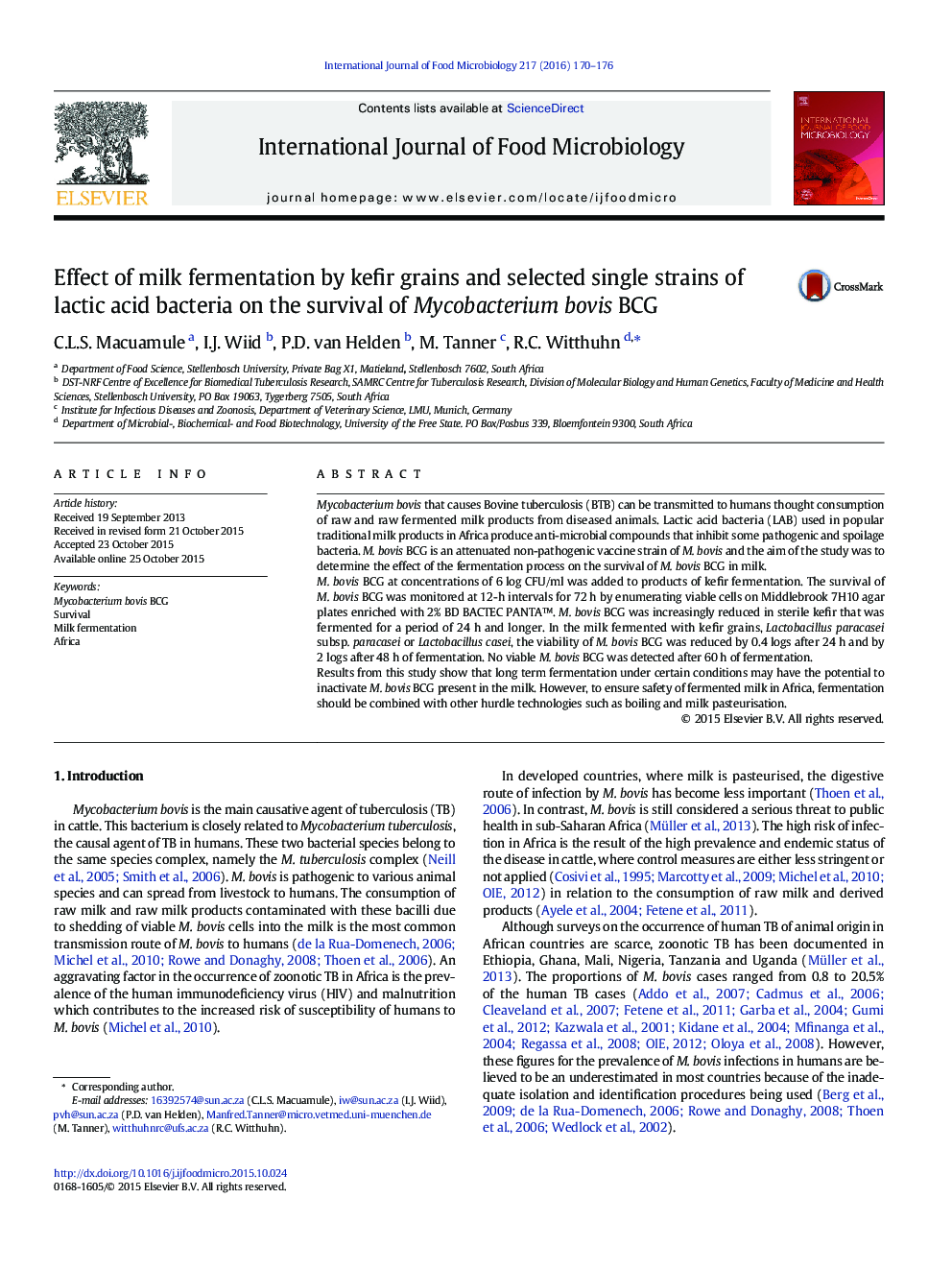| Article ID | Journal | Published Year | Pages | File Type |
|---|---|---|---|---|
| 4366411 | International Journal of Food Microbiology | 2016 | 7 Pages |
•Bovine tuberculosis is a zoonosis with higher importance in Africa.•Raw milk is mostly processed by fermentation in Africa.•Short term fermentation of milk is not sufficient for elimination of M. bovis BCG.•Long term lactic acid fermentation have potential to inactivate slow growing Mycobacteria.•Boiling and pasteurisation are fundamental to ensure safety of fermented milks in Africa.
Mycobacterium bovis that causes Bovine tuberculosis (BTB) can be transmitted to humans thought consumption of raw and raw fermented milk products from diseased animals. Lactic acid bacteria (LAB) used in popular traditional milk products in Africa produce anti-microbial compounds that inhibit some pathogenic and spoilage bacteria. M. bovis BCG is an attenuated non-pathogenic vaccine strain of M. bovis and the aim of the study was to determine the effect of the fermentation process on the survival of M. bovis BCG in milk.M. bovis BCG at concentrations of 6 log CFU/ml was added to products of kefir fermentation. The survival of M. bovis BCG was monitored at 12-h intervals for 72 h by enumerating viable cells on Middlebrook 7H10 agar plates enriched with 2% BD BACTEC PANTA™. M. bovis BCG was increasingly reduced in sterile kefir that was fermented for a period of 24 h and longer. In the milk fermented with kefir grains, Lactobacillus paracasei subsp. paracasei or Lactobacillus casei, the viability of M. bovis BCG was reduced by 0.4 logs after 24 h and by 2 logs after 48 h of fermentation. No viable M. bovis BCG was detected after 60 h of fermentation.Results from this study show that long term fermentation under certain conditions may have the potential to inactivate M. bovis BCG present in the milk. However, to ensure safety of fermented milk in Africa, fermentation should be combined with other hurdle technologies such as boiling and milk pasteurisation.
